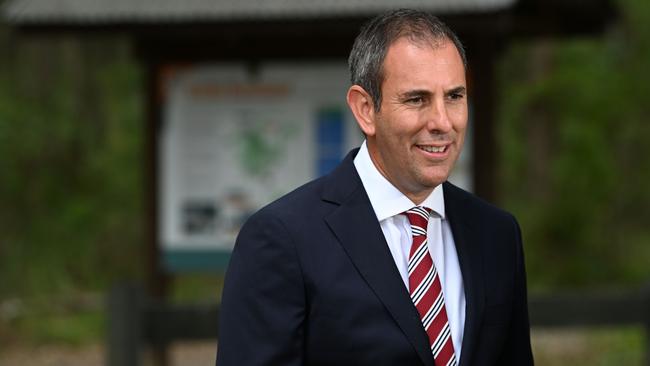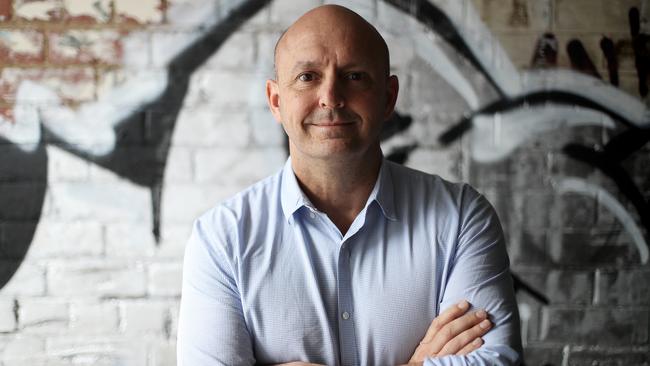Why values-based capitalism needs the Productivity Commission

Scream all you like but Jim Chalmers’ values-based capitalism is taking root. And maintaining the integrity of the Productivity Commission is more important than ever.
What then, does the Treasurer mean in his essay by the plan to “renew and revitalise the Productivity Commission as a powerful think tank advising government on productivity, as well as prosperity and progress more broadly”? What change is coming?
Consider the public’s love of Botox and cosmetic surgery. The first time a face is lifted or revitalised it might look okay, but when it comes time to interfere again, the reference point is no longer the original face. Do it enough times and you get Mickey Rourke and Priscilla Presley.
The PC is the true face. It provides independent advice to government on economic, social and environmental issues affecting the welfare of Australians. And it has the right to publish first, without tinkering from politicians.
The PC’s five-year Productivity Inquiry final report is published this month. Its thoughts on education and the NDIS come just ahead of the government’s May wellbeing budget.

Unions and economists like Richard Denniss want the PC scrapped. They argue it is impotent and few if any recommendations are acted on. And that “productivity” is about how much output is produced from each unit of input and therefore has nothing to with prices or the IR debate. But this is trite.
Much of the PC’s crucial work is around micro-economic reform and efficiency, recognised by the OECD and the IMF as world’s best practice. It remains the central design workshop to deal with a social policy issue, despite recent mandates to the ACCC on gas and childcare.
Two weeks ago Education Minister Jason Clare cited a “damning” report on the state of school education and called for serious reform. It came from the Productivity Commission, backed by numbers from its review of government services (to the discomfort of the education department).
Last year 90 per cent of Australian workers were in services like health and education. Education and product innovation are the great influences in a service based economy if it is to see productivity growth.

A fresh government policy that intersects prosperity and wellbeing is to get industry super funds to co-invest in many of its visionary projects – be it affordable housing, or further solar investment or sovereign manufacturing.
Commercial returns are questionable and yet super funds trustees are bound to put members first. “Superannuation (funds) invest for returns for people’s retirement,” Future Fund chair Peter Costello reminded everyone on Wednesday.
A standout achievement by the PC has been reform to the superannuation system, introducing performance assessment and the one-time default in super.
Jim Chalmers needs design work done that puts some boundaries around co-investment by super funds. At least then there will be proper debate.
If the critics of value-based capitalism worry about more money thrown willy-nilly to solve education, or the savings of Australians being funnelled into projects with low returns, then they should also worry about the ongoing mandate of the Productivity Commission.
The Treasurer is on record as wanting to keep the PC’s independence. But there are risks to its integrity. One risk is a change in the way the nine commissioners and chair are appointed.
Currently the PC provides a shortlist to the government of candidates based on qualifications, and a preparedness to work hard and defend their ideas. Some say already appointments are already politicised.

Setting the right Commission bench is an insurance policy for the guardrails that values-based capitalism does not detract from productivity. Chair Michael Brennan’s term expires in September.
A critical appointment for Jim Chalmers will be who should run this year’s review into the Productivity Commission.
Imagine for example if that person were to be former Treasurer Wayne Swan, who chairs super fund Cbus. In November Cbus put $500m of member money into affordable housing through the Government’s National Housing Finance and Investment Corporation.
A very important power of the PC is to publish in its own right, without government approval or interference. It must retain that right.
Change to public policy inquiries by the PC to make them more politically acceptable is a serious undermining of policy making.
The PC and the Treasurer do agree that improving productivity means decarbonising the economy, but market intervention with price caps is not top of the PC’s recommendations.
The government may be lucky with weather, it may call the energy sector’s bluff and it may succeed without any serious investment crisis or gas supply crisis.
In all this however, the Productivity Commission should remain in place with the power to critique the impact of such policies.


